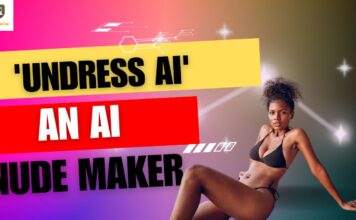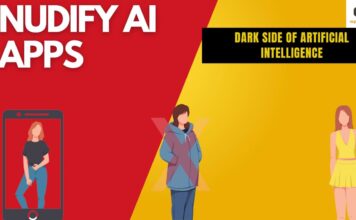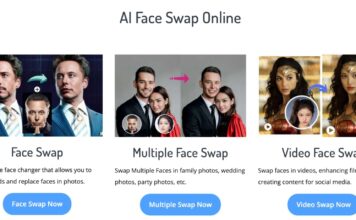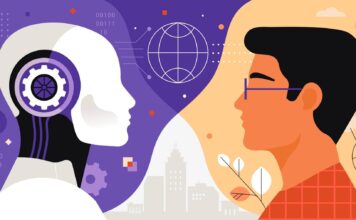In recent years, artificial intelligence (AI) has revolutionized industries worldwide, and marketing is no exception. From personalized customer experiences to predictive analytics, AI helps businesses communicate with their customers in new ways, power campaigns more efficiently, and provide the data that drives decision-making. AI is remodeling the marketing landscape as we move into an era almost totally shaped by technology. Here, we analyze its main applications and discuss reasons for businesses to adopt AI as part of their marketing arsenal.
The Rise of AI in Marketing
AI mimics human thinking, learning, and problem-solving – and its marketing potential has taken center stage in the last few years. AI, powered by large quantities of data and boosted through machine learning algorithms, can automate time-consuming processes, analyze customer behavior, and deliver hyper-targeted campaigns based on what it has learned.
Even the best marketing intentions can be hampered by tedious manual processes, broad target audiences, and a general lack of understanding about customer behavior. Today, AI empowers marketers to progress from generalized strategies to highly personal ones, providing customers with more meaningful interactions and experiences.
Key Applications of AI in Marketing
Personalization at Scale
One of AI’s most impressive advantages is the ability to provide personalized experiences on a grand scale. AI-powered instruments examine client data—such as search habits, buying history, and social media interactions—to determine which items or services a particular customer may be interested in. With this data, marketers can tailor the content offered to each customer, resulting in more relevant interactions and improving the chance of a conversion.
For example, AI algorithms used in recommendation engines like e-commerce websites study past behavior to select products a customer is more likely to purchase. Similarly, AI can help deliver personalized email marketing campaigns for businesses, providing subscribers with merchandise or articles based on their interests.
Predictive Analytics
In the age of big data, data crunching is AI’s forte. Predictive analytics uses historical data, statistical algorithms, and machine learning techniques to predict the likelihood of future outcomes. Marketing reaps the fruits of predictive analytics in that it can foresee client behavior: is this customer likely to buy, and when will she possibly quit?
Marketers can optimize their campaigns in real time using AI-powered predictive analytics, making incremental adjustments that will help boost engagement and conversion rates. This data-driven method not only enhances the customer experience but also helps to maximize marketing budgets by ensuring that fewer resources are wasted on leads that won’t go anywhere.
Chatbots and Conversational AI
Chatbots have become increasingly commonplace in customer service. These AI-supported devices are designed to imitate human conversation, responding instantly to users’ questions, with response times that can rarely be matched by human-powered services. If chatbots are incorporated into websites, social media platforms, and message applications, businesses can provide 24/7 support.
AI chatbots can ask users qualified questions and collect information for the sales team. They can manage multiple conversations independently, and allow a business to save time and resources while still helping customers. However, this doesn’t mean that AI will be replacing all customer services any time soon. For complex requests, customers will still likely seek out human interaction – which is a prime example of why AI should be used to support people power, and not necessarily left in charge.
Content Creation and Curation
AI has greatly changed content generation. Marketers can rely on AI to automate writing all sorts of copy, including blogs, product descriptions, and social media posts. AI-powered tools, such as GPT-based models, produce human-like text that can be tailored to appeal to particular groups of people.
AI is also useful for content curation because it can sift through tremendous amounts of information and suggest relevant content for businesses to share. By keeping abreast of trends, AI identifies hot topics and helps marketers to stay ahead of the content marketing curve.
Ad Targeting and Campaign Optimisation
AI’s ability to process vast volumes of data is incredibly valuable in advertising. Traditionally, ad targeting was based on general demographics and tastes. Now, thanks to AI, marketers can make highly focused ad deliveries that are timely and directed toward specific segments.
Machine learning algorithms can analyze campaign performance data and adjust ad placements, bidding strategies, and targeting criteria to maximize ROI. AI-driven automated advertising platforms allow businesses to deliver the right ads to the right people at the right time, and ensure that their advertising budget is spent wisely.
AI and Marketing Automation
AI is making waves in marketing automation, helping businesses streamline and optimize their marketing processes in all areas. AI-powered automation tools can handle tasks such as email marketing, social media posting, lead nurturing, and more. Research shows that the majority of businesses agree that AI makes marketing automation more efficient and effective, demonstrating its growing role in increasing productivity and ensuring better outcomes for marketing campaigns. This efficiency allows businesses to focus more on strategic decision-making while automation handles repetitive tasks. This can be particularly useful for small business owners, who may not necessarily have the resources to spare on mundane tasks.
By using AI to segment email lists based on customer behavior, companies can send different messages to only the groups of people they directly impact—whether that’s happy existing customers, noncustomers near their area of influence, or customers whose needs have changed. Improved automation means reducing errors and time spent reworking, ensuring each customer gets the right content at the right time.
In addition, AI can also help determine the optimal posting time for social media articles so that they are seen by as many people as possible. Social networks such as Facebook and Instagram use artificial intelligence to study the behavior of their users, serving up popular posts according to user preferences to encourage engagement.
Why AI is Essential for Marketers
Integrating AI into marketing strategies isn’t simply a suggestion – it is likely to become necessary for business survival. To summarize, the main benefits of AI for marketing are:
- Enhanced Efficiency: Automation driven by AI lowers the manual work in marketing tasks, freeing up time for strategic projects.
- Better Decision-Making: AI enables businesses to make data-driven decisions, cutting out guesswork and allowing for more informed marketing strategies.
- Improved Customer Engagement: AI helps businesses build closer ties with their customers by personalizing experiences and creating helpful content every moment.
- Cost Savings: AI optimizes ad spend, boosts lead generation, and reduces marketing wasted effort to deliver a better return on investment.
The Future of AI in Marketing
With the likes of Forbes referring to the use of AI in marketing as the dawn of “Marketing 2.0”, we can assume that more and more sophisticated AI marketing solutions will soon emerge – including hyper-personalized experiences, voice recognition capabilities as good as any adult ear, and native intelligence.
Many businesses are already using AI-led marketing strategies. As research by ON24 has shown, 85% of organizations agree that businesses using AI will see stronger revenue performance than those that don’t, reflecting a growing consensus on AI’s role in enhancing profitability. This trend highlights the urgency for marketers to adapt and harness AI effectively, as companies leveraging AI in digital strategies are already positioned to outpace their competitors.
Conclusion
Through the capabilities of AI, marketing is changing at a remarkable pace, with companies able to offer personalized and data-driven experiences at scale. From content creation and predictive analytics to ad targeting and automation, AI is helping marketers optimize campaigns, strengthen client relations, and drive more significant ROI. While the technology is still evolving, one thing is clear: the future of marketing lies in artificial intelligence. To help unlock the powers of AI, many resources and platforms are available to companies that can provide helpful advice and new solutions to navigate this new world and gain a lead over rivals.

Vikramjeet Singh Rana is a B.Tech graduate in Computer Science from Chandigarh University, with over 9 years of experience in AI applications, web development, and digital marketing. He has worked on a wide range of projects that integrate intelligent technologies with performance-driven digital strategies. Vikramjeet brings a strong foundation in coding and data systems, coupled with a deep understanding of user behavior and marketing trends. His insights are grounded in hands-on experience, making him a reliable source for practical guidance in tech and digital innovation.










